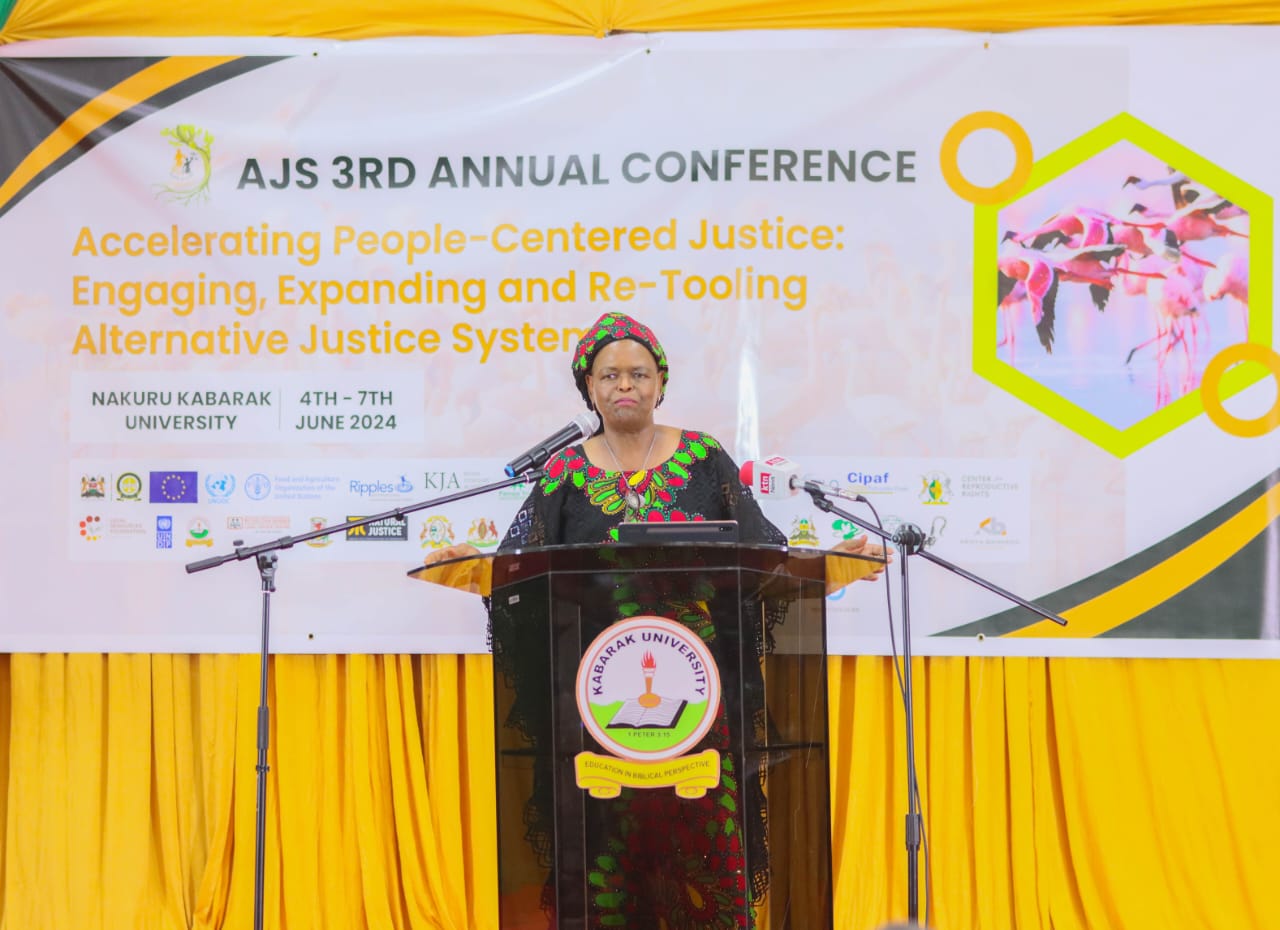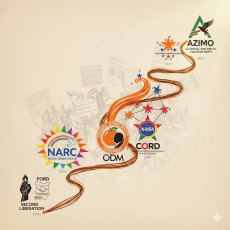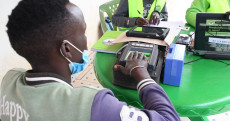- Covering the theme "Accelerating People-Centered Justice in Kenya: Expanding and Retooling Alternative Justice Systems," the event drew participants from various sectors, including legal experts, community leaders, academics, and policymakers, all gathered to discuss and advance the implementation of AJS in Kenya.
On Wednesday, June 5, 2024, the Lady Justice of the Supreme Court of Kenya Martha Koome led the 3rd Annual Alternative Justice Systems (AJS) Conference held at Kabarak University.
The conference spanning four days had its opening ceremony on Tuesday, June 4, 2024. CJ Koome was accompanied by Hon. Justice (Dr.) Smokin Wanjala, Mandera County Governor Mohamed Adan Khalif among other officials from State, Government, NGOs and institutions.
Covering the theme "Accelerating People-Centered Justice in Kenya: Expanding and Retooling Alternative Justice Systems," the event drew participants from various sectors, including legal experts, community leaders, academics, and policymakers, all gathered to discuss and advance the implementation of AJS in Kenya.
Martha Koome, graced the event as the chief guest. In her keynote address, Chief Justice Koome underscored the importance of AJS in making justice more accessible, affordable, and effective for all Kenyans, particularly the marginalized and underserved communities.
She emphasized that the conventional justice system, while essential, often fails to address the unique needs of these groups, necessitating the expansion and enhancement of alternative mechanisms.
Read More
Her Ladyship Martha Koome reiterated that the AJS will provide opportunities for all Kenyans to act as agents of justice while clarifying that the system is not inferior/threat to the formal justice system since it brings agreement in all parties involved in the dispute.
“Alternative Justice System is a mechanism that is engraved in cultural space of the public that communities understand and have been practicing since time immemorial. The mechanism checks that we incorporate the Kenyan Bill of Rights in all the processes,” she said
"Justice must be inclusive and tailored to the needs of the people. By expanding and retooling our Alternative Justice Systems, we can ensure that justice is not only seen to be done but is actually done in a manner that resonates with the lived experiences of every Kenyan," Chief Justice Koome remarked.
She highlighted various successful AJS initiatives, including community mediation and traditional dispute resolution mechanisms, that have proven effective in resolving conflicts amicably and sustainably.
The conference featured a series of panel discussions and workshops that delved into the practical aspects of AJS. Key topics included the integration of traditional justice systems with formal legal frameworks, the role of technology in enhancing AJS processes, and the training of AJS practitioners.
Experts shared insights and best practices from different regions, illustrating how AJS can complement the formal justice system. One of the significant outcomes of the conference was the formation of a national task force to develop a comprehensive strategy for the implementation of AJS across the country.
This task force will work towards creating a cohesive policy framework that aligns traditional and modern justice practices, ensuring they operate synergistically to enhance overall access to justice.
Participants also discussed the need for public awareness campaigns to educate citizens about their rights and the available AJS mechanisms. They stressed the importance of community involvement in designing and implementing these systems to ensure they are culturally appropriate and widely accepted.
In addition to the formal sessions, the conference provided ample opportunities for networking and collaboration among stakeholders. Attendees expressed optimism that the insights and resolutions from the conference would pave the way for more robust and people-centered justice delivery in Kenya.
As the conference concluded, Chief Justice Koome reiterated her commitment to championing AJS as a vital component of Kenya's justice system.
"We are committed to transforming our justice landscape to be more inclusive, fair, and effective. Together, we can build a justice system that truly serves the people," she affirmed.
The Kabarak University conference marks a significant step towards realizing this vision, setting the stage for continued dialogue, innovation, and progress in the realm of alternative justice in Kenya












